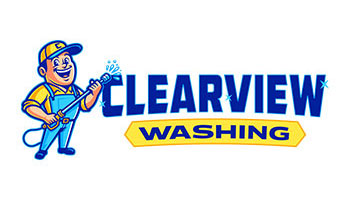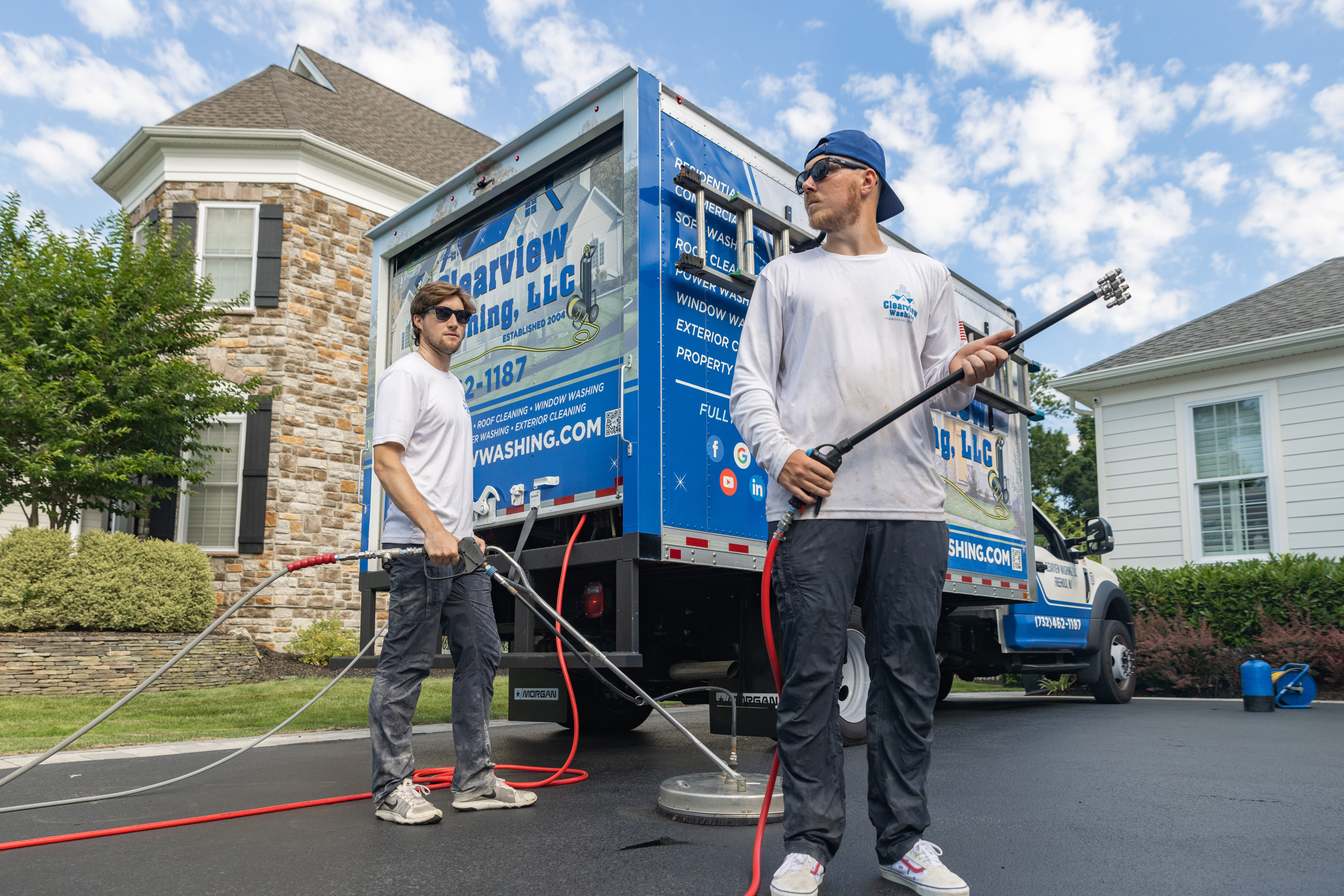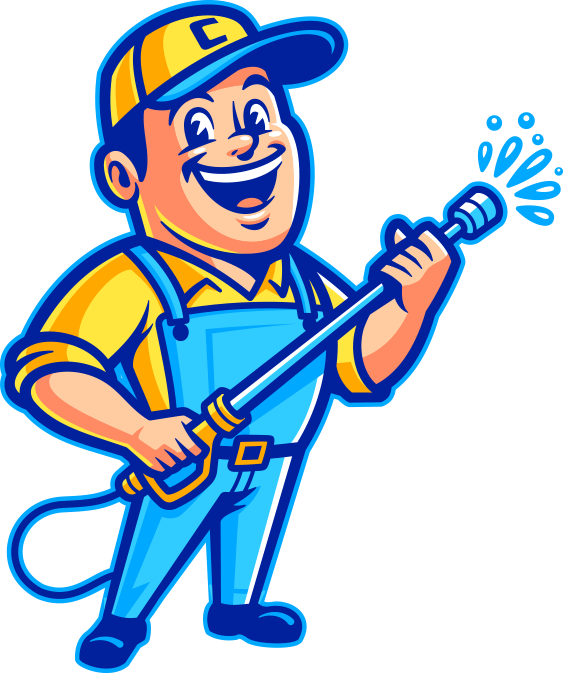Reliable Pressure Washing Services in Mantoloking, NJ & Surrounding Areas
Pressure washing is an effective and efficient way to clean various surfaces around your home or commercial property. From driveways and sidewalks to siding and roofs, pressure washing can help remove dirt, grime, mold, and other contaminants, improving the appearance and longevity of your property. However, choosing the right pressure washing near me Mantoloking NJ can be a daunting task. In this blog post, we’ll provide some tips for hiring a pressure washing service near you that meets your needs and expectations.
Start by researching local pressure washing companies in your area. You can use online search engines, social media platforms, and local business directories to find potential providers. Pay attention to reviews and ratings to get an idea of the company’s reputation and the quality of its work.
Ask for Recommendations
Ask friends, family members, neighbors, or coworkers if they have any recommendations for pressure washing services they’ve used in the past. Personal referrals can often lead to trustworthy and reliable providers that have a proven track record of delivering excellent results.
Verify Licenses and Insurance
Before hiring a pressure washing service, make sure they have the necessary licenses and permits to operate in your area. Additionally, ensure the company has liability insurance and workers’ compensation insurance to protect you from any damages or injuries that may occur during the job.
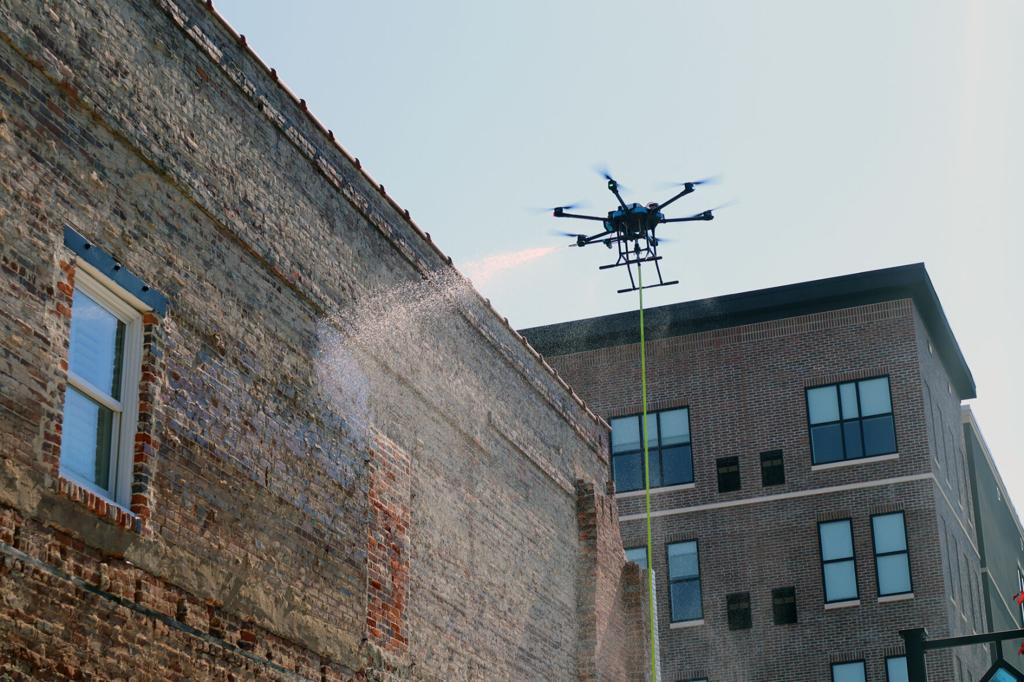
Check Experience and Reputation
Experience and reputation are crucial factors to consider when choosing a pressure washing service. Look for a company that has been in business for several years and has a portfolio of completed jobs. Check online reviews and testimonials from previous clients to get a sense of their reputation and the quality of their work.
Request References
A reputable pressure washing service should be able to provide you with references from past clients. Contact these references and ask about their experience with the company, including the quality of work, professionalism, and overall satisfaction.
What surfaces can be pressure washed
Pressure washing is an effective and efficient way to clean various surfaces, but not all surfaces can withstand the high pressure and force of the machine. Choosing the wrong surface to pressure wash can cause damage and potentially be dangerous.
Concrete surfaces such as driveways, sidewalks, and patios are some of the most common surfaces that are pressure washed. These surfaces are tough and can withstand the high pressure of the machine. Concrete surfaces can accumulate dirt, grime, oil, and other stubborn stains that regular cleaning methods may not be able to remove. Pressure washing can easily blast away these tough stains and leave the surface looking clean and new again.
Brick surfaces are another common surface that can be pressure washed. However, it is important to use the correct pressure and nozzle setting when washing brick surfaces. High pressure can damage the mortar and cause it to loosen or break. Using a lower pressure setting and a wider nozzle can effectively clean brick surfaces without causing damage.
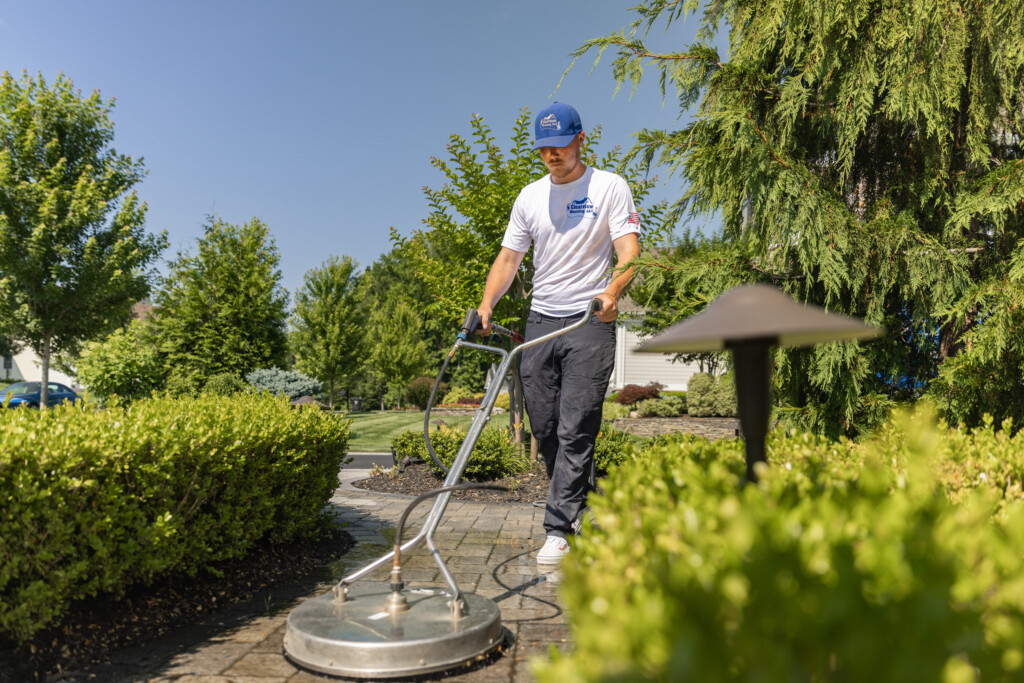
Vinyl siding is another surface that can be pressure washed safely. Over time, vinyl siding can accumulate dirt, grime, and mildew. Pressure washing can effectively remove these stains and leave the siding looking clean and fresh. However, it is important to use a lower pressure setting and avoid spraying water at an upward angle, as this can force water behind the siding and cause damage.
Wood surfaces can also be pressure washed, but caution should be taken as wood can be easily damaged by high pressure. It is recommended to use a lower pressure setting and a wider nozzle when pressure washing wood surfaces such as decks, fences, and siding. Additionally, it is important to use a cleaning solution specifically designed for wood surfaces to avoid damaging the wood.
Pavers and stones can also be pressure washed, but again, caution should be taken. High pressure can cause pavers and stones to shift or become dislodged. Using a lower pressure setting and a wider nozzle can effectively clean these surfaces without causing damage.
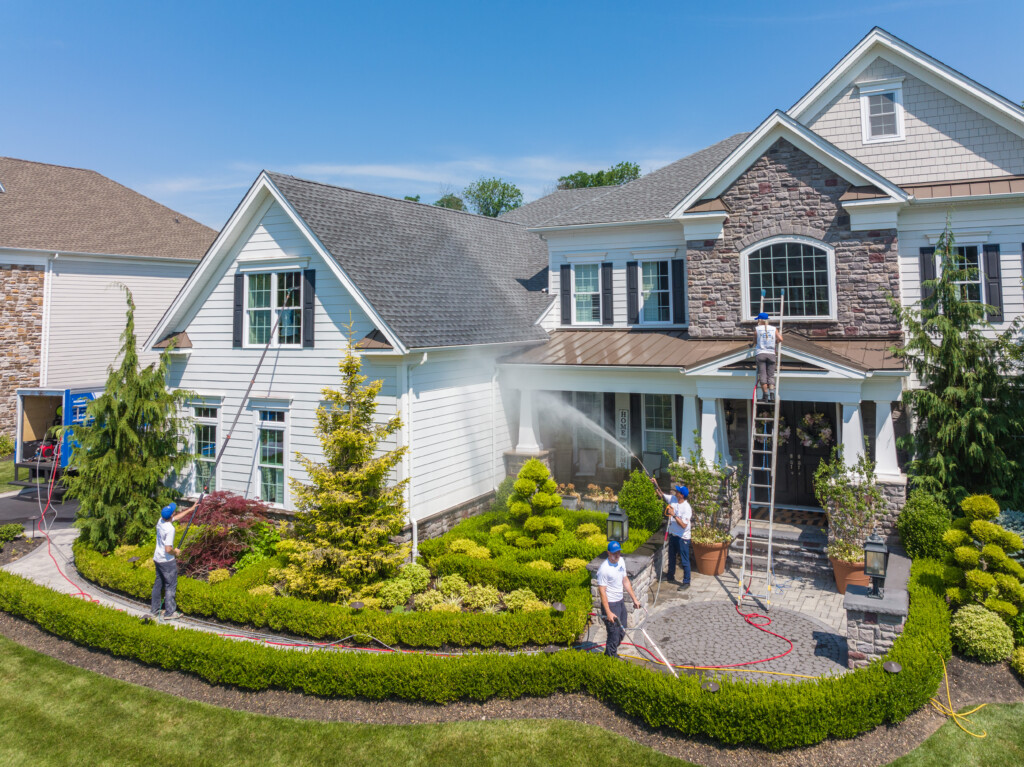
What is the difference between pressure washing and power washing
When it comes to cleaning various surfaces, pressure washing and power washing are often used interchangeably. However, there are some key differences between the two techniques.
Pressure washing is a cleaning method that uses a high-pressure water stream to remove dirt, grime, and other stubborn stains from surfaces. A pressure washer typically uses water at a pressure of 1,000 to 3,000 PSI (pounds per square inch) and a flow rate of 1 to 4 gallons per minute. Pressure washing can effectively clean surfaces such as concrete, brick, vinyl siding, and wood.
Power washing, on the other hand, is a more intense cleaning method that uses hot water in addition to high pressure to clean surfaces. A power washer typically uses water at a pressure of 2,000 to 4,000 PSI and a flow rate of 4 to 8 gallons per minute. The hot water is heated to a temperature of 180 to 200 degrees Fahrenheit, which helps to break down and dissolve stubborn stains. Power washing is typically used for industrial cleanings, such as cleaning heavy machinery, oil rigs, and factories.
The main difference between pressure washing and power washing is the addition of hot water. While both methods use high-pressure water streams, power washing uses hot water to break down and dissolve stubborn stains more effectively. Power washing is typically used for heavy-duty cleaning, while pressure washing is used for more general cleaning purposes.
Another difference between the two methods is the surfaces that can be cleaned. Because power washing uses hot water and higher pressure, it can be used on surfaces such as concrete, brick, and asphalt, as well as more delicate surfaces such as stone and tile. However, power washing may not be suitable for cleaning surfaces such as wood or vinyl siding, as the high pressure and hot water can cause damage.
Pressure washing, on the other hand, can effectively clean surfaces such as wood, vinyl siding, and pavers, as well as more durable surfaces such as concrete and brick. The lower pressure and flow rate make it a safer option for cleaning delicate surfaces.
Contact a local pressure washing expert today to get your free quote.
